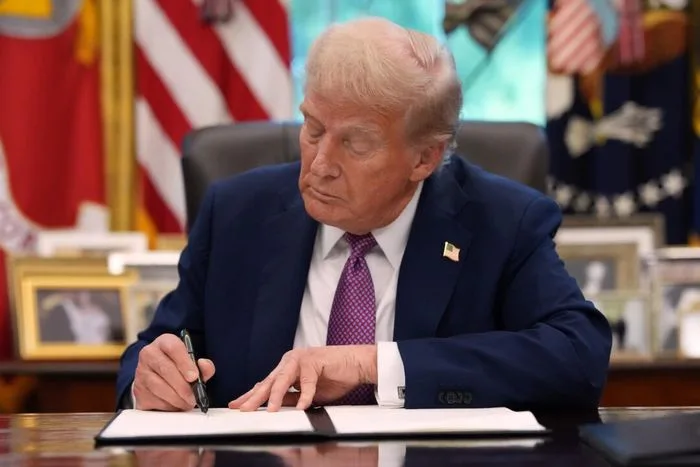Trump Signs Order on Direct-to-Consumer Advertising

By Zachary Stieber
Federal officials are resuming enforcement of regulations that dictate how pharmaceutical products can be advertised to consumers, the Trump administration said on Sept. 9, as President Donald Trump signed a new executive order.
The Food and Drug Administration (FDA) is restarting its enforcement of regulations that prohibit pharmaceutical ads from creating a “misleading impression” and require them to present a “fair balance of information,” a senior administration official told reporters on a call.
The FDA is also reversing its 1997 relaxation of direct-to-consumer ad regulations, which enabled companies to point people to information hosted in other places, such as websites, the official said. Spending on direct-to-consumer ads jumped from $150 million in 1993 to $6 billion in 2016, according to a 2023 paper published in the Journal of Public Economics. The rise primarily happened after the 1997 FDA move.
“Our goal is to ensure that patients have proper information about drugs that have potential harms, and it’s to rebuild public trust,” the official said.
“This presidential memorandum is the strongest, boldest action that we can take on making sure that people have patients have adequate safety information on pharmaceutical ads,” another senior administration official told reporters on the call. “There’s no additional steps planned.”
A bipartisan group of senators is pursuing legislative action to eliminate direct-to-consumer ads.
FDA regulations require ads to present “a fair balance between information relating to side effects and contraindications and information relating to effectiveness of the drug” and prohibit creating a “misleading impression.”
The FDA has increasingly declined to enforce the regulations. While in the past the agency would regularly send more than 100 enforcement letters to companies each year, just one was sent in 2023, and none were sent in 2024, according to the administration.
The FDA was going to send out about 100 of these cease-and-desist letters on Tuesday, an administration official said. The official declined to identify any of the companies or commit to releasing the letter.
The administration was alerted to the issue by senators who flagged an ad during the Super Bowl in January from Him and Hers that advertised weight-loss pills and did not mention any possible side effects.
The company did not immediately respond to a request for comment.
Asked about whether the FDA has stopped enforcing the regulations due to lawsuits, an administration official said that “there are ads that are clearly crossing the line with respect to the regulation, making any potential future legal action, I think, pretty clear-cut.”
“We are also going to be looking hard at social media companies, social media influencers … that have influencers paid to promote pharmaceutical products without proper disclosures and without following the same rules that pharmaceutical companies follow,” an administration official said.
According to a 2024 review of previous studies and articles, some pharmaceutical companies and individuals have increasingly used social media to promote drugs, and only about a third of posts mentioned possible harms from the promoted drugs.
Federal officials said in a report released on Thursday that the FDA, the Department of Justice, and other agencies would “increase oversight and enforcement under current authorities for violations of direct-to-consumer (DTC) prescription drug advertising laws.”
Officials are going to focus on “egregious violations demonstrating harm from current practices,” including those from social media influencers, they said.



